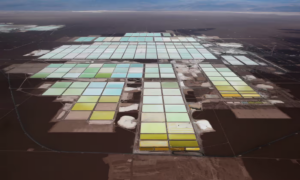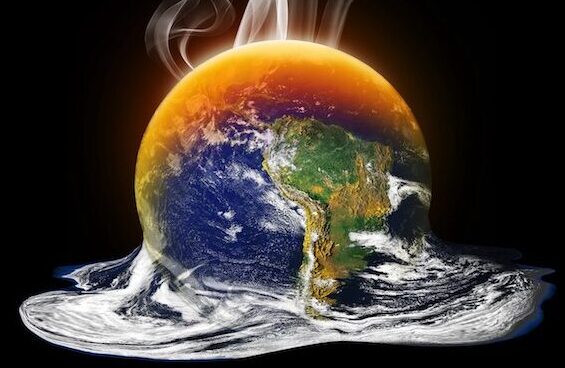The environment – it is where we live. It provides all our basic needs such as air food and water supply, materials for clothing and shelter. Beyond that it provides materials for everything else we need, except for the energy we get from the sun. Our environment is critically important to all life on the Earth. We should be good stewards of our home for it is the only home we have.
In the Bible, we read is Genesis chapter 2 verses 7 through 8 that when God made man he also made a garden and placed the man in it. Verse 5 tells us that God instructed the man to ‘work and keep’ the garden.
Thus, caring for our environment where it makes sense; where our knowledge of environmental science, as limited as it is, guides us. Listening, watching, reading and learning today would lead one to believe ‘green energy’ is the answer, or at least the best answer we have. The first question then is “what is green energy?”

Surprisingly, the United Nations and even Wikipedia do not have a definition of Green Energy. They use the term ‘Renewable Energy’. The United Nations defines this on their ‘Climate Action’ webpage. The fact they tie renewable energy to climate change is significant in understanding the motivations behind green energy and thus renewable energy.
The UN webpage opens with “Renewable energy is energy derived from natural sources that are replenished at a higher rate than they are consumed.” It gives sunlight and wind as examples. So let’s go based on this definition.
First problem seen is the fact, the science, that this statement contradictions the 1st law of Thermodynamics which states that energy cannot be created or destroyed, it only changes form. Thus we cannot ever have a system, natural or otherwise, that is replenished at a higher rate than consumed. Energy cannot come from nothing, just like our universe could not have come from nothing.
Regardless of this, sun, wind, wave action, geothermal heat and other sources of energy do seem, for human purposes, to be infinite. We cannot use them all up, so they are good sources of energy for us.
In nature, plants take in the sun’s energy and through the process of photosynthesis use that energy to convert carbon dioxide (CO2) and water (H2O) into food to feed the plant. Nature does this extremely efficiently. Likewise, solar panels, wind turbine, heat pumps, convert energy from the sun, wind, air or ground into electrical energy we can use. All good so far, except our process are not near as efficient as nature.
Once we have this electrical energy we can use it to power electrical devices. Battery based power tools and vehicles for example. Cellphones, laptops, electric shavers, all kinds are electrical. To operate this energy must be stored. It is stored in batteries of some sort. Lithium Ion batteries are the most common today. The storage is needed to make the energy portable so we can carry around in cellphones and we can drive around in our cars. Storage is also needed so the energy can be withdrawn in times when there is not enough solar or wind energy available; on cloudy and calm days and over the dark nights for example.

How about the green part of this. That is the part that is so compelling. The ‘green’ label means these kinds of energy sources look good for our environment. Let’s look at that.
Lithium is a mineral this is mined from the earth. Cobalt and other minerals are also essential in batteries. Our environment is providing all this for us. earth.org has good material on the actual impact of extracting these minerals from the ground, the amount of pollution produced, the water used in the processing and contamination with heavy metals of much of that water. It is not as clean we we are lead to believe. There is the limited amount of recycling of batteries so these minerals contaminate landfill sites and thus end up in the ground water. Batteries is not very “green” after all.
Aside from the batteries there is the process of converting energy into the electrical form we can store. The solar panels for sunlight and the turbines for wind are the 2 prime examples.
Wind turbine blades, for many years could not be recycled. They are huge and are buried in landfill sites when they can no longer be used. Some companies are now recycling but the vast majority are still being dumped into our environment. They do not breakdown and decay for a very long time. Not so “green” after all.
Solar panels, like wind turbines, have an lifespan. They need to be recycled or discarded and replaced. Like turbines, there is some recycling but it is a vey small percentage. Most solar panels are discarded. They have hazardous materials which over time leach from the landfill sites into the water table contaminating it. As solar panel use is growing at an amazing rate, primarily due to government subsidies, the problem will grow. Even if more recycling is done the growth is far outpacing recycling. Today in the USA, according to a Harvard Business Review it costs $20-$30 per panel to recycle and $1-$2 to discard of it. What do you think a business, that wants to complete with others businesses to sell panels, will do? They will save the $18-$27 per panel and discard them. Not so “green” after all.

The primary motivation for green energy is saving the environment; reducing ‘green house gases’. The next question is “what are green house gases?” and “why do we need to reduce them?” The primary greenhouse gas we hear about is CO2 – Carbon Dioxide. Is it bad? Apparently, according to many governments, including our Canadian Liberal party. The United Nations claims they are bad, or at least to much is bad and we have too much, thus we need to reduce it.
The United States Geological Survey, a science organization created in 1879 as part of the USA government’s Department of the Interior, states “Adding more greenhouse gases into the atmosphere, like we do when burning fossil fuels, acts like putting a thicker blanket on the planet. The thicker the blanket of greenhouse gases, the less heat escapes into space.” Putting a blanket around the earth is warming it up, thus global warming. Remember that term? We don’t hear that anymore as it is not true, so the terminology has changed to ‘climate change’.
The fact is that plants ‘breathe’ CO2 just like humans breathe oxygen. More CO2 means plants grow larger. Larger plants consume more CO2. In the past, when dinosaurs roamed, earth core samples show the planet was warmer. Even more recently the “medieval warm period” from around 900 AD to 1300 AD was warmer than today. That was a 400 year period, not just the past half century talked about now with respect to global warming. To quote Canada’s current prime minister “we follow the science”. That does not seem to be true in this case as the science is very clearly against what our PM and his team espouse.
Now we know what green house gases are and what they do, we are left with the question “why do we need to reduce them?” Why do we need Net-Zero programs, carbon-tax programs, reduction in fertilizers, reductions in animal farming, subsidies for electrics vehicles and billions of dollars, in Canada alone, to subsidize green energy concepts? It is clearly not the science of the environment. The science that seems to apply here is economics. The economics of shifting wealth and political power from one place to another.
In conclusion, I could go on and on about sun cycles, El-Nino and El-Nina cycles, the effect of clouds on temperature, the very long and slow change ion ocean temperature and that effect on climate and many other factors that are not well understood from a climate change perspective. But no need. As the global warming scare of Al Gore in 2006 with “An Inconvenient Truth” faded away quickly as truth came to light, so Net-Zero is now quickly fading for the same reasons. Many companies and investment that switched focus to “green energy” are turning back to industries that show growth and potential. Many politicians in the democratic world (countries ruled by the people) are realizing this is a sinking ship and like rats they are fleeing while they can. In the non-democratic world (countries ruled by dictators) they never did care about these issues and were never on-board.
The next time you hear someone talking about green energy, net-zero, or climate change ask some questions to see if they really know anything beyond what the main stream media is saying. As much of Canadian media is government subsidized one can logically expect their reporting is far from objective.
We can all, and should all, do our part to care for and maintain our environment. I’d suggest we don’t blindly believe that our leaders have our best interests at heart but do what makes common sense.

